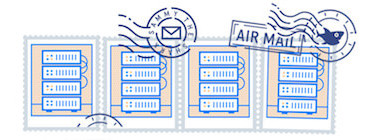
Introduction
Node.js is a JavaScript platform for general-purpose programming that allows users to build network applications quickly. By leveraging JavaScript on both the front and backend, Node.js makes development more consistent and integrated.
To get your development environment configured so you can start building Node.js applications. select the tutorial for your platform.
// Tutorial //
How to Install Node.js and Create a Local Development Environment on macOS
Node.js is an open source JavaScript runtime environment for easily building server-side applications. It’s also the runtime that powers many client-side development tools for modern JavaScript frameworks. In this tutorial, you’ll set up a Node.js…
// Tutorial //
How To Install Node.js on Ubuntu 18.04
Node.js is a JavaScript platform for general-purpose programming that allows users to build network applications quickly. In this guide, we’ll show you how to get started with Node.js on an Ubuntu 18.04 server.
// Tutorial //
How To Install Node.js on Debian 10
Node.js is a JavaScript platform for general-purpose programming that allows users to build asynchronous network applications quickly. By leveraging JavaScript on both the front and backend, Node.js can make web application development more consistent…
// Tutorial //
How To Install Node.js on Ubuntu 16.04
Node.js is a popular Javascript platform that can be used to build web applications quickly and easily. In this guide, we’ll get you up and running with Node.js on an Ubuntu 16.04 server.
// Tutorial //
How To Install Node.js on Debian 9
Node.js is a JavaScript platform for general-purpose programming that allows users to build network applications quickly.
In this guide, we’ll show you how to get started with Node.js on a Debian 9 server.
// Tutorial //
How To Install Node.js on Debian 8
Node.js is a JavaScript platform for general-purpose programming that allows users to build network applications quickly. By leveraging JavaScript on both the front-end and the back-end, development can be more consistent and be designed within the same system. In this…
// Tutorial //
How To Install Node.js on a CentOS 7 server
Node.js is a popular Javascript platform that is used for server-side programming. In this guide, we will discuss quite a few different ways of installing Node.js on a CentOS 7 server.
// Tutorial //
How To Install Node.js on Ubuntu 20.04
In this guide, we will show you three different ways of getting Node.js installed on an Ubuntu 20.04 server: using apt to install the nodejs package from Ubuntu’s default software repository, using apt with an alternate PPA software repository to install specific versions of the nodejs package, and installing the Node Version Manager and using it to install and manage multiple versions of Node.js
// Tutorial //
How To Install Node.js on CentOS 8
In this guide, we will show you three different ways of getting Node.js installed on a CentOS 8 server: using dnf to install the nodejs package from CentOS’s default AppStream repository; installing nvm, the Node Version Manager, and using it to install and manage multiple versions of node; compiling and installing node from source.




